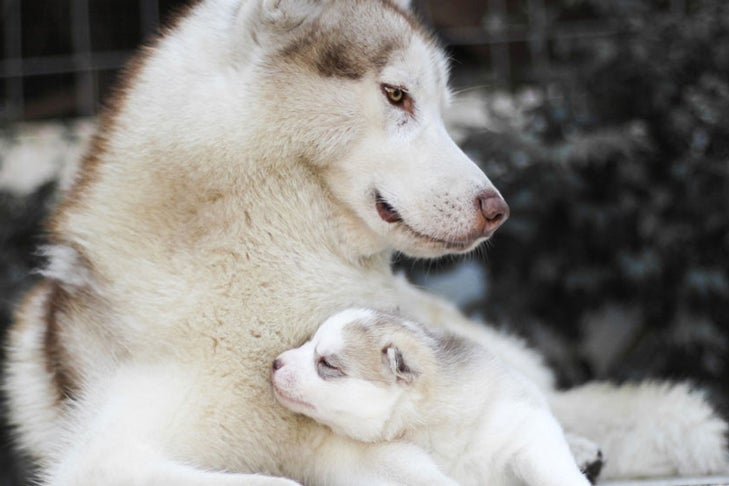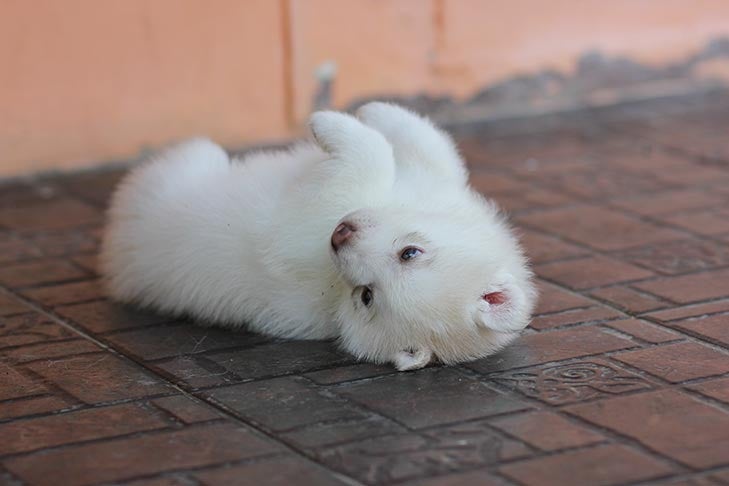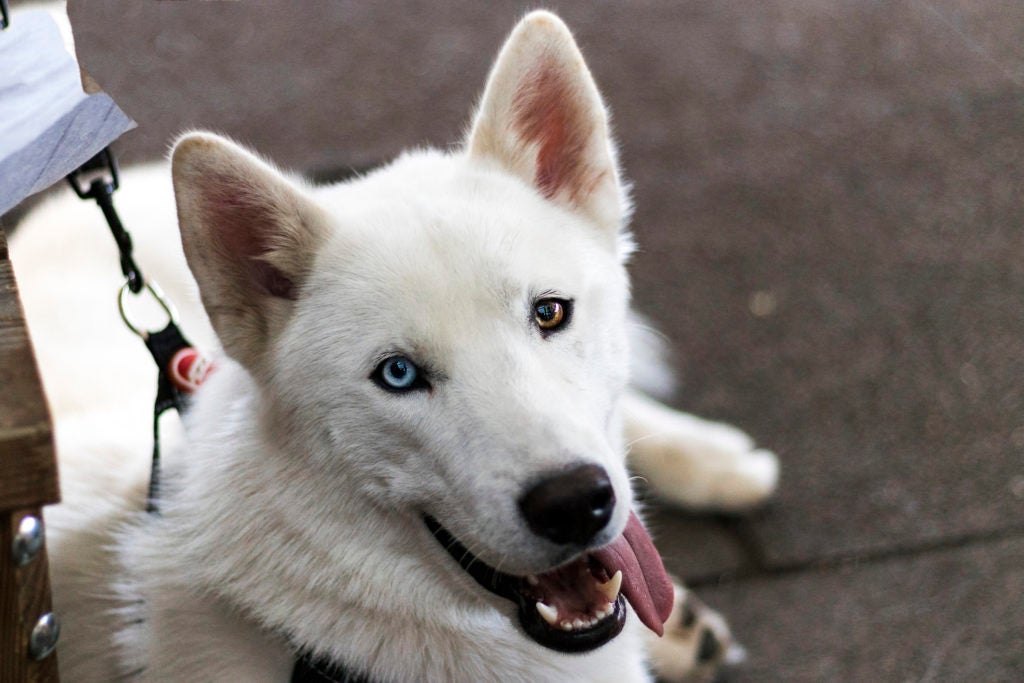
Game of Thrones may be over, but dogs and dog lovers around the world are still feeling the show’s repercussions. For eight years, more than 30 million viewers watched dire wolves protect the Stark family. For many viewers, Ghost, Summer, Nymeria and pack’s intelligence, fierce loyalty, and imposing stature were more than entertaining: it inspired them to find their own “dire wolves.”
Except that the dire wolf has been extinct for hundreds of thousands of years. Ghost was played by an Arctic wolf, and his canine co-stars were played by a crossbreed of Siberian Huskies, Samoyeds, Malamutes, and other northern breeds. And so, in search of a dire wolf of their own, many fans turned to the closest thing they could find: Siberian Huskies.
Since Game of Thrones, Dog Shelters Have Filled with Siberian Huskies
The result? Today, shelters in the United States and around the world are seeing massive increases in abandoned Siberians. Randee McQueen has been working in Siberian Husky rescue for 25 years, and is Treasurer of the Bay Area Siberian Husky Club (BASH). In the area BASH covers, McQueen says, they’re seeing up to four or five abandoned dogs a month that they suspect were bought by fans of Game of Thrones, because they’re named after dire wolves or because their markings match those of the show’s dire wolves. Another local rescue McQueen is involved with has seen about a 20 percent increase in abandoned Siberians, which they believe is related to the show.
In McQueen’s experience, many people are buying these dogs online, without doing the necessary research on the needs of Siberian Huskies. McQueen stresses the importance of doing plenty of research, and of buying from a responsible and ethical breeder, even though that will probably mean putting your name on a list and waiting for a dog to become available.

Why You Should Buy Your Siberian Husky From a Responsible Breeder
Chicago area breeder Carol Preble makes sure potential buyers spend time with adult Siberians before they see any puppies. She trains her dogs meticulously and spends times educating buyers about the needs of Siberians. And if owners experience any difficulties with their dogs, whether it’s a few weeks after they take them home or 12 years later, Preble is there to help with retraining or even take the dog back, if necessary.
“My contract states that if you can’t keep the dog for any reason, it comes back here,” Preble told AKC.org. “And any AKC Breeder of Merit should have that in their contract. They should be willing to take the dog back.” Preble also stresses that when they buy from a responsible breeder, owners can meet their dog’s parents, find out about its lineage, and be confident that the appropriate genetic testing has been done to minimize genetic weaknesses.
Needless to say, when people buy from substandard kennels or unethical breeders, they don’t get any of this education, information, or support, which greatly increases the likelihood that they will end up abandoning the dog when it outgrows its adorable puppyhood.
If all this sounds expensive—it isn’t. McQueen notes that the people who are buying puppies online are “paying outrageous prices. We’re hearing upwards of $2,000. A purebred Siberian from a reputable breeder that’s of pet quality around here [in the Bay Area]? $800 to $1,000. But you have to get on a list, so you have to be a little bit patient.”
The Needs and Traits of Siberian Huskies
So why do so many people who buy without doing the research find themselves unable to care for their dog? Dawn Eisele, Public Education Chair of the Siberian Husky Club of America (SHCA), told AKC.org, “A Siberian needs a certain amount of activity and brain stimulation, both physical and mental. And if you don’t give them that on a daily basis, then they’re going to figure it out themselves.”
Often, “figuring it out themselves” means finding a way to escape—which might involve climbing or digging or even chewing their way out of enclosed spaces, no matter how Husky-proof you think they are. And because they’re so independent-minded and they’re bred to run long distances, a Siberian Husky should never be allowed off-leash. McQueen told AKC.org, “We’ve rescued three this year alone that had broken legs at under six months because [the owners] let them off leash and they got hit by cars, and then they couldn’t afford it.”
Eisele also makes sure to tell people who are considering a Siberian that these dogs have strong predatory instincts (which means they will chase all sorts of small critters, including cats); they don’t make good guard dogs (since they’re so friendly and curious they rarely bark at strangers); and they shed. For some, the amount of fur they leave around the house is surprising and off-putting.
They’re also fantastic dogs, says Eisele, who emphasizes that they’re great with kids and make extremely loyal family members. They’re pack animals who get on well with other dogs, and they’re naturally clean and fastidious. So long as you do your homework and make sure they’re the right breed for you, they can make a wonderful addition to the family.

Considering a Siberian Husky?
If you’re considering adding a Siberian Husky to your family, the experts advise:
- Research, research, research. You can read up on Siberian Huskies at AKC.org or via the Siberian Husky Club of America (SHCA).
- Talk to people who know about Siberians—whether that’s by contacting the SHCA or your local Siberian Husky club, by heading to AKC’s Meet the Breeds, or by reaching out to a Siberian Husky rescue in your area. The experts you meet will be able to help you decide whether a Siberian is right for you.
- Buy only from a reputable breeder, so that you know you’re getting a well-trained, well-bred dog, plus all the education and support a breeder provides. You can find a breeder on the AKC’s Marketplace or via the SHCA.
If you do decide to go ahead, the experts advise that Siberian Huskies need the following:
- Training. As independent-minded dogs, they need obedience training early in their lives, and their owners must be rigorous in adhering to it.
- Plenty of exercise and mental stimulation. These dogs were bred to run.
- An enclosed space that they cannot escape from, either out of boredom or to chase critters.
- An owner who doesn’t mind them shedding their coat.
- Several experts told AKC.org that Huskies can live in apartments so long as the owner has time to give them ample exercise—several miles of walking per day.

